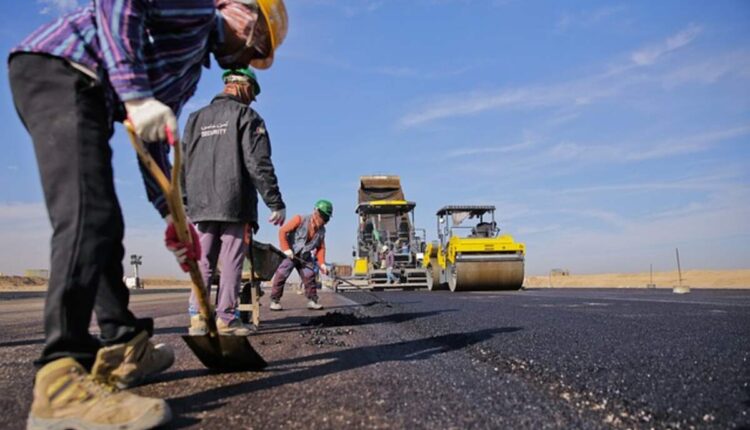Asphalt is a highly durable material suitable for many paving applications, from creating parking spaces and widening driveways to repairing existing ones. Typical paving jobs include adding more parking spots or widening existing ones. Look for the best info about asphalt Kittanning.
Numerous factors combine to form an asphalt paving cost estimate. Key ones include project scope, preparation materials, and risk management.
Cost of Materials
The cost of asphalt paving varies based on the materials used and the work required to prepare a site, including labor. Skilled labor plays an integral part in asphalt costs; their prices may also depend on your location or union agreements. Therefore, it’s wise to compare quotes from multiple providers so you get the best deal for your project.
At the core of asphalt costs are its raw materials: aggregates (such as crushed stone and sand), bitumen (aka asphalt cement), and binder. Prices may fluctuate due to factors like mining and transport costs; quality matters, too: high-grade aggregates and bitumen can help lower maintenance expenses over pavements’ lifespans.
Time is another key component in estimating asphalt costs, and it can depend on factors like size, weather conditions, and whether permits are needed for construction. Furthermore, site conditions such as dips or bumps, debris, or trees can significantly impact paving costs.
Risk management and safety equipment expenses also contribute to asphalt costs. Contractors incur these additional expenses to mitigate job-site risks while assuring employees remain safe during construction.
Cost of Labor
Asphalt is an attractive material choice for roads and parking lots due to its durability, low cost, quick installation process, and ease of repair. Plus, its versatility in construction provides greater flexibility while making repairs more straightforward. However, due to so many variables involved in each project, estimating how much asphalt you require can be tricky—online calculators like Basic Construction’s asphalt calculator help estimate approximate tonnage but don’t offer a cost estimate.
Asphalt prices depend heavily on the price of raw materials. Asphalt’s main ingredients include aggregates (primarily crushed stone, gravel, and sand) and its binder bitumen or asphalt cement. Prices of these components can fluctuate based on supply and demand conditions.
Labor costs associated with preparing and laying asphalt can also be considered. Along with hauling, spreading, and compacting materials for pavement construction, workers must also compact it to ensure its quality. In some instances, workers may also need to use milling machines or remove existing pavement in order to create an even surface.
Costs may also depend on your location; market influences such as oil prices can affect prices, while demand can change prices accordingly. Other variables that can alter pricing include permit fees, grading and excavation charges, and disposal charges. Selecting an asphalt contractor certified with both your state Department of Transportation’s asphalt training programs and the National Center for Asphalt Technology is crucial to staying within budget; ensure they can provide a contract, detailed estimate, and warranty before beginning their work.
Cost of Equipment
Asphalt paving is a popular choice among contractors due to its durability, resilience, and cost-effectiveness. It can be used in various capacities, ranging from highway construction and reconstruction to resurfacing sidewalks or parking lots and even customizing it for aesthetic purposes—but keep in mind that customization will add cost! Additionally, customized options may increase installation prices significantly.
Equipment used is another major factor influencing the cost of paving, and an experienced contractor should have all necessary machinery and tools available for their task. The size of your area determines what equipment may be necessary; larger jobs typically need larger machines, which increases their cost.
Transport and loading expenses will increase the overall costs. This includes hourly wages for workers and fuel expenses. Equipment must be transported directly from its production facility to its final location for unloading, with prompt tamping to prevent cooling and damage to both workers and equipment.
Paving serves two purposes: improving physical appearances and providing functionality. When selecting your paving material, it’s essential to determine your desired aesthetic and traffic exposure. For an extravagant transformation, opt for more luxurious materials like cobblestones or pavers; otherwise, opt for durable asphalt solutions that stand up well under heavy loads.
Cost of Permits
Selecting a qualified and experienced asphalt paving contractor is crucial to any asphalt project’s success. A licensed business will likely have more knowledge about local codes and permit requirements, which could expedite the process; alternatively, hiring unreliable fly-by-night contractors could end up costing more money in the end.
Before construction can start, the paving team must inspect and prepare the site to create an ideal surface. This may involve clearing away existing materials, grading the area, adding an aggregate base layer, compacting it using special machinery, and finally laying hot-mix asphalt (HMA). Fabric interlayers between layers of HMA may increase bonding strength further.
Asphalt pavements are composed of aggregates, filler material, and binders used in road construction. Aggregates consist of crushed stones of various sizes, while bitumen binder is commonly employed; other petroleum-based compounds or bio-based alternatives may also be utilized; moreover, these technologies are currently under development.
An asphalt driveway typically costs $120 to $240 to install; installing a paved sidewalk typically ranges between $620 and $1,600, while curb installation typically costs $3 to $6 per linear foot. Prior to beginning any paving projects in NYC, make sure you obtain all required permits: Street Opening Permit, Pavement Cut Permit, and Sidewalk Construction Permit are among them.


